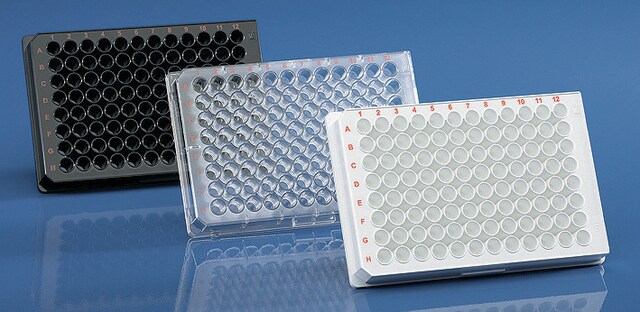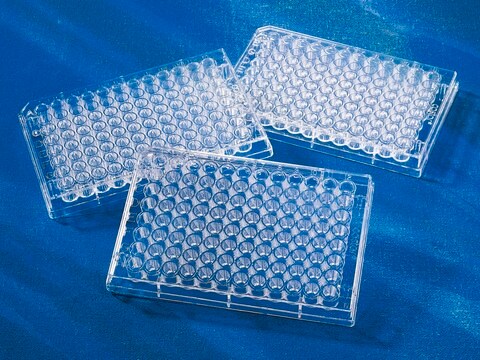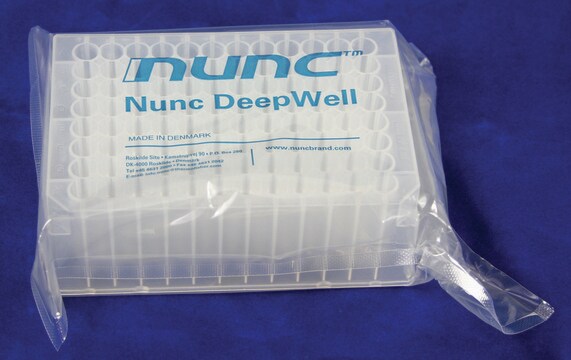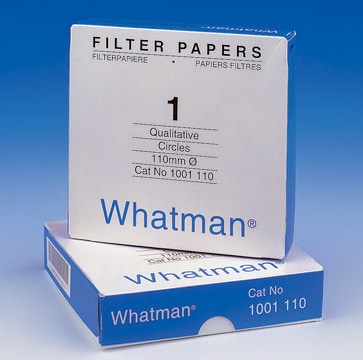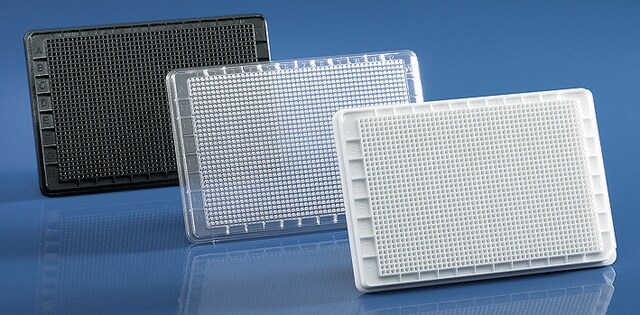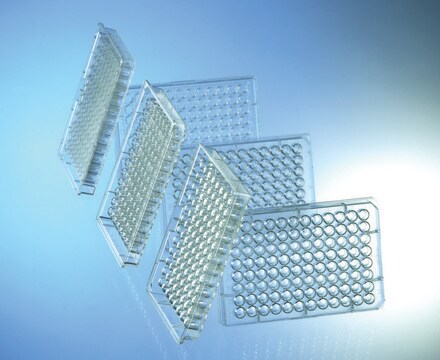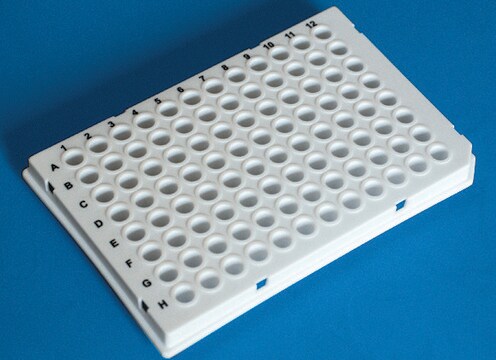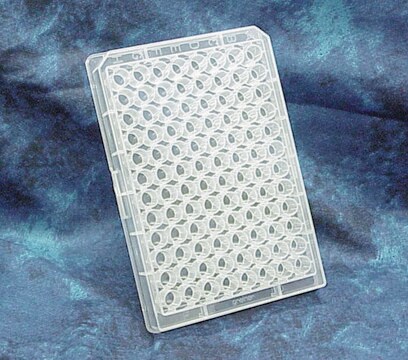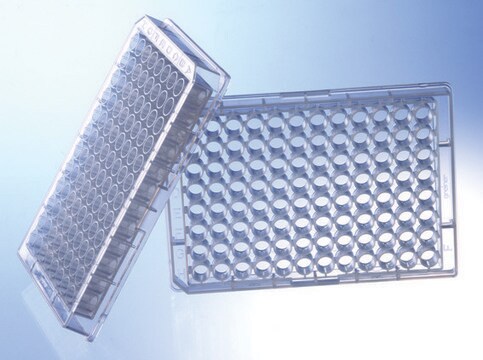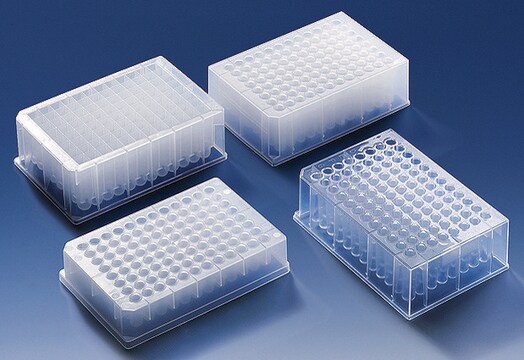BR701330
BRAND® 96-well microplate, U-bottom
round bottom, non-sterile
Synonym(s):
Microplates, Plates, Sample Storage
Sign Into View Organizational & Contract Pricing
All Photos(1)
About This Item
UNSPSC Code:
41121800
NACRES:
NB.15
material:
polypropylene
round bottom
round bottom
size:
96 well
Recommended Products
material
polypropylene
round bottom
sterility
non-sterile
packaging
pack of 100 ea
manufacturer/tradename
BRAND 701330
size
96 well
well maximum volume
300 μm
suitability
suitable for (bacteriological assays)
binding type
non-treated surface
General description
PP. For volumes up to 300 µl. Compatible with virtually all leading microplate centrifuges. Raised rings around the orifice of each well minimize possible cross-contamination. The plates can be sealed using self-adhesive films, such as DMSO-resistant sealing film (cross-cut) with alphanumeric coding.
Features and Benefits
- BRAND® 96-well microplate, U-bottom is a deep-well plate ideal for agglutination and other assays requiring stirring and washing of samples.
- Features a round-shaped well bottom with no edges.
- Raised rings around the orifice prevent possible cross-contamination.
- Compatible with a range of microplate centrifuges.
- Securely sealable with suitable sealing mats or self-adhesive sealing films.
- Alphanumeric code for accurate identification.
- Made from high-transparency medical grade polypropylene (PP) that facilitates sample visibility.
- Chemically resistant to most solvents including DMSO, phenol, and chloroform.
Legal Information
BRAND is a registered trademark of BRAND GMBH + CO KG
Choose from one of the most recent versions:
Certificates of Analysis (COA)
Lot/Batch Number
It looks like we've run into a problem, but you can still download Certificates of Analysis from our Documents section.
If you need assistance, please contact Customer Support.
Already Own This Product?
Find documentation for the products that you have recently purchased in the Document Library.
Customers Also Viewed
Julien Racle et al.
Nature biotechnology, 37(11), 1283-1286 (2019-10-16)
Predictions of epitopes presented by class II human leukocyte antigen molecules (HLA-II) have limited accuracy, restricting vaccine and therapy design. Here we combined unbiased mass spectrometry with a motif deconvolution algorithm to profile and analyze a total of 99,265 unique
Timo Strohäker et al.
Nature communications, 10(1), 5535-5535 (2019-12-05)
Parkinson's disease (PD) and Multiple System Atrophy (MSA) are clinically distinctive diseases that feature a common neuropathological hallmark of aggregated α-synuclein. Little is known about how differences in α-synuclein aggregate structure affect disease phenotype. Here, we amplified α-synuclein aggregates from PD
Mateusz Maciejczyk et al.
Oxidative medicine and cellular longevity, 2019, 4393460-4393460 (2019-12-31)
Despite the proven role of oxidative stress in numerous systemic diseases and in the process of aging, little is still known about the salivary redox balance of healthy children, adults, and the elderly. Our study was the first to assess
Lisa-Marie Mauracher et al.
Journal of clinical medicine, 8(10) (2019-10-05)
The exact contribution of neutrophils to post-resuscitative brain damage is unknown. We aimed to investigate whether neutrophil extracellular trap (NET) formation in the early phase after return of spontaneous circulation (ROSC) may be associated with poor 30 day neurologic function
Gefei Chen et al.
Communications biology, 3(1), 32-32 (2020-01-22)
Molecular chaperones play important roles in preventing protein misfolding and its potentially harmful consequences. Deterioration of molecular chaperone systems upon ageing are thought to underlie age-related neurodegenerative diseases, and augmenting their activities could have therapeutic potential. The dementia relevant domain
Our team of scientists has experience in all areas of research including Life Science, Material Science, Chemical Synthesis, Chromatography, Analytical and many others.
Contact Technical Service